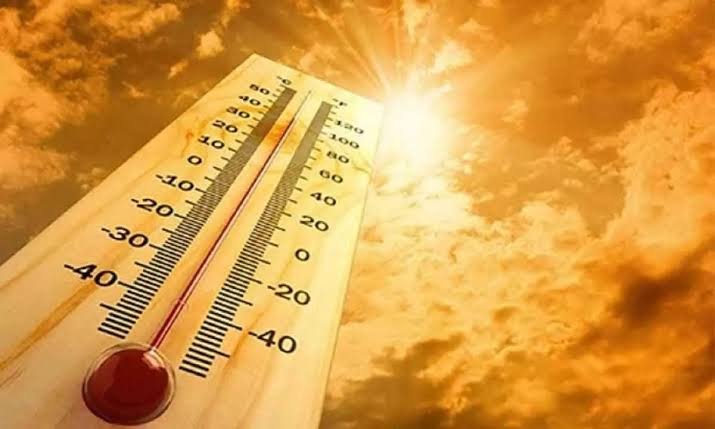By Bilawal Kamran
A heat wave is a period of abnormally hot weather that lasts for several days. The temperatures have to be outside the normal or average range for the area and the season. A heat wave can be caused by a high atmospheric pressure system that traps and warms the air . Heat waves are among the most dangerous of natural hazards, because they can cause heat-related illnesses and deaths, especially for children, elderly, and people with chronic diseases .
Heat waves can also affect agriculture, energy, transportation, and water resources. Therefore, managing heat wave periods are crucial for the sustainability of individual & collective life.
Accordingly, following steps can be taken to avoid heat wave :
- Stay hydrated by drinking plenty of water and avoiding alcohol and caffeine.
- Stay cool by wearing light-colored and loose-fitting clothes, using fans or air conditioners, and avoiding direct sunlight and strenuous activities.
- Stay informed by checking the local weather forecast and heat alerts, and following the advice of health authorities.
- Stay safe by checking on yourself and others who may be at risk, such as children, elderly, and pets, and seeking medical help if you feel unwell or experience symptoms of heat-related illnesses.

- Don’t expose to the sun or heat. However, if is unavoidable, remain in shadow & cover the face and head with cloth. Keep water with yourself.
There is a heatwave in Pakistan. It’s also important to keep social standards. A number of Laborers work on daily basis, therefore, it’s important to be compassionate, considerate and helping towards them.
Medical Treatment for Heat Waves
Heat waves are periods of extremely hot weather that can last for several days and have a significant impact on health and society. Climate change is causing more frequent and severe heat waves around the world, increasing the risk of heat-related illness and death.
Heat-related illness is a spectrum of conditions that result from exposure to high temperatures and dehydration. The most common forms are heat cramps, heat exhaustion, and heat stroke. Heat stroke is a medical emergency that requires immediate treatment to prevent organ damage or death.
The main goals of treatment for heat-related illness are:
Rapid cooling of the body temperature
Rehydration with fluids and electrolytes
Management of potential end-organ damage
Rapid Cooling
The most effective way to cool a person with heat stroke is to immerse them in cold water or cover them with ice packs. If this is not possible, other methods include spraying them with water and fanning them, or applying wet towels or sheets. The cooling process should continue until the body temperature reaches below 38.5°C (101.3°F)1.
Rehydration
People with heat-related illness should drink fluids that contain water, sugar, and salt to replace the losses from sweating. Oral rehydration solutions or sports drinks are suitable options. If the person is unable to drink or has signs of shock, intravenous fluids may be needed.
Management of End-Organ Damage
Heat-related illness can affect various organs and systems in the body, such as the brain, heart, kidneys, liver, muscles, and blood. Depending on the severity of the condition, the person may need monitoring and treatment for:
- Altered mental status or seizures
- Low blood pressure or heart failure
- Acute kidney injury or rhabdomyolysis
- Liver dysfunction or coagulopathy
- Electrolyte imbalances or metabolic acidosis
- Prevention of Heat-Related Illness
- Heat-related illness is preventable by avoiding exposure to extreme heat and staying hydrated. Some general measures include:
- Checking the weather forecast and heat index
- Wearing loose-fitting, light-colored clothing and a hat
- Seeking shade or air-conditioned places
- Drinking plenty of fluids before, during, and after outdoor activities
- Avoiding alcohol, caffeine, and sugary drinks
- Limiting physical exertion during the hottest hours of the day
- Taking frequent breaks and cooling off with water or ice
- Never leaving children or pets in parked cars.
- Some people may have higher risk factors for heat-related illness, such as:
- Older age
- Chronic medical conditions (e.g., heart disease, diabetes, asthma)
- Medications that affect fluid balance or thermoregulation (e.g., diuretics, antipsychotics)
- Pregnancy
- Obesity
- Social isolation or poverty.
- These people should take extra precautions to protect themselves from heat stress and seek medical attention if they develop any symptoms of heat-related illness. They should also consult their doctor about how heat may affect their health condition or medication.
Clinicians have a role in identifying patients at risk for heat-related illness and providing education and advice on prevention and treatment strategies. They should also be aware of the signs and symptoms of heat-related illness and initiate appropriate interventions as soon as possible.
















